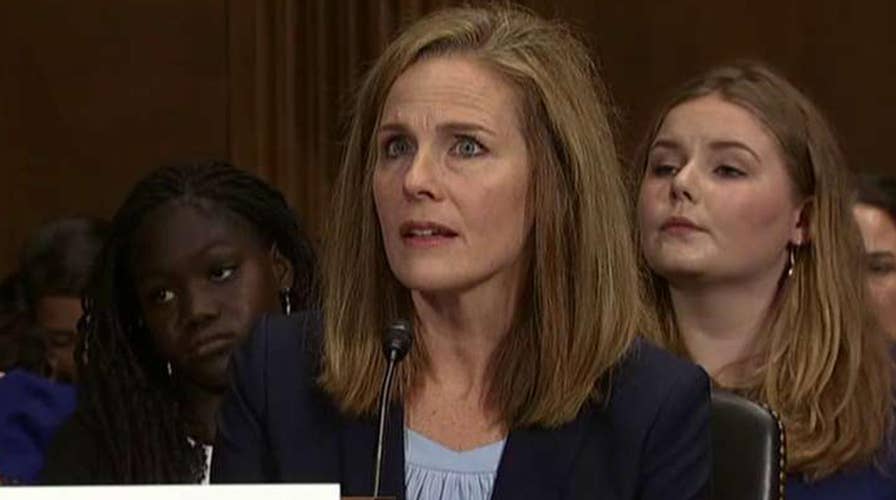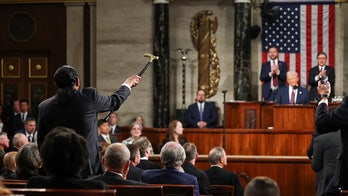A look at Judge Amy Coney Barrett's thoughts from the bench
Supreme Court surrogate for Judge Amy Coney Barrett discusses the potential SCOTUS pick's previous decisions.
President Trump on Monday met with Judge Amy Coney Barrett, who sources say is the potential frontrunner to fill the vacant Supreme Court seat left following the death the late Justice Ruth Bader Ginsburg.
The news supported widespread speculation that emerged after Ginsburg's death. Although Trump recently released a lengthy list of potential nominees, he appeared to narrow those down over the weekend when he said he wanted a woman to fill the spot.
On Monday, Trump said he had narrowed his choices down to at five potential nominees. While speaking with reporters, he specifically addressed potentially nominating Barbara Lagoa, a Cuban-American who serves on the 11th U.S. Circuit Court of Appeals. “I may. She is highly thought of,” he said when asked about her.
He added: “I’m getting a lot of phone calls from a lot of people. she has a lot of support. I don’t know her but I hear she is outstanding.”
The president told "Fox & Friends" he intended on waiting until services ended for the late justice. “I think it will be on Friday or Saturday and we want to pay respect, it looks like we will have services on Thursday or Friday, as I understand it, and I think we should, with all due respect for Justice Ginsburg, wait for services to be over," he said.
Barrett, 48, a judge with the Chicago-based U.S. Court of Appeals for the Seventh Circuit, is a conservative, pro-life Roman Catholic who clerked for late Justice Antonin Scalia after she graduated from law school.
She was one of a handful of judges who were under consideration for former Justice Anthony Kennedy's spot in 2018. That spot was later filled by Justice Brett Kavanaugh but Barrett remained an interest of conservative activists, with special attention paid to her position on abortion.
CLICK HERE TO GET THE FOX NEWS APP
Her faith previously caught attention as Sen. Dianne Feinstein, D-Calif. suggested it might interfere with her job as a jurist. "I think whatever a religion is, it has its own dogma. The law is totally different. And I think in your case, professor, when you read your speeches, the conclusion one draws is that the dogma lives loudly within you, and that’s of concern," Feinstein said during a 2017 hearing.
In response, Barrett said: "It's never appropriate for a judge to impose that judge's personal convictions, whether they arise from faith or anywhere else, on the law."
Fox News' John Roberts and Brie Stimson contributed to this report.














































